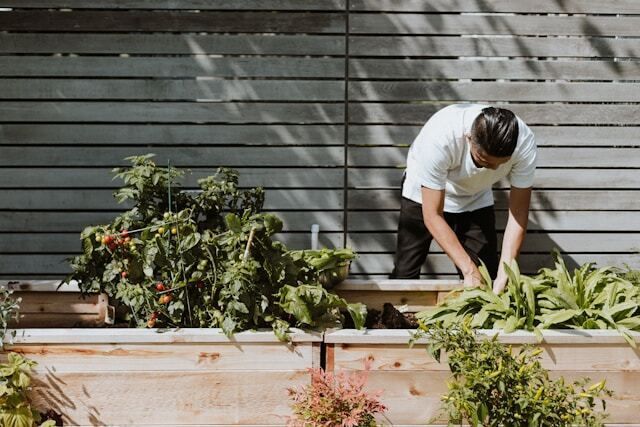
Summer is officially here, which means it’s time to grab the potting soil and shovel and get to work. Not everyone has a green thumb, but gardening doesn’t have to yield visible benefits; sometimes the feeling of accomplishment is all you need. Gardening has been found to positively affect people’s physical and mental health. If you’re looking for a way to get outside while also improving your whole self, gardening may be the hobby for you.
Gardening can lower your risk of a heart attack or a stroke.
A study done in Stockholm, Sweden, found that regular gardening can cut the chances of heart attack and stroke by up to 30% in people over 60 years. By exposing your skin for just 10 minutes without sunscreen, you can soak up enough Vitamin D to reduce the risk of heart disease, osteoporosis and various types of cancer. By gardening, even for only 15 minutes a day, you are improving your chances of a longer, healthier life.
Gardening increases your hand strength and your dexterity.
Getting outside in the dirt can keep your hand muscles strong and agile. Gardening typically requires a large range of motion in your hands; keeping them busy by planting and harvesting keeps them nice and healthy. However, do not push yourself, as strenuous work with your hands can lead to carpal tunnel, tendonitis or repetitive stress injuries. Use an ergonomic grip and alternate the use of your right and left hands to balance out the amount of work your hands are doing. Using your non-dominant hand is also a brain exercise to keep it functioning normally.
It builds up your immune system.
Remember the Vitamin D mentioned before? It can help you fight off colds and flus. Also, the soil that gets under your fingernails and drives you crazy is actually beneficial. It contains bacteria called Mycobacterium Vaccae that has been known to soothe asthma, allergy and psoriasis symptoms when inhaled or absorbed. Who knew dirt could be good for you?
Gardening can help alleviate depression symptoms.
The Mycobacterium Vaccae mentioned above has also been found to help people who suffer from depression. Breathing it in or ingesting it can have similar effects to antidepressants. The physical activity gardening requires results in elevated body temperatures that can lead to better moods.
It can aid in stress relief and self-esteem.
A Dutch study found that gardening can lower people’s cortisol levels. Cortisol is known as the “stress hormone” and can influence more than just your mood. Higher levels of cortisol have been found to affect immune function, memory, learning problems, obesity and heart disease. Gardening also improves your self-esteem when you see your hard work on a tiny seed turning into a blooming plant.
Gardening can decrease your chance of brain problems and dementia.
Research has found daily gardening to be the best way to reduce your risk of dementia (reducing incidence by 36%). Imagine having a hobby you love that’s also great for your health. Dementia is a tricky syndrome to understand, but scientists think gardening helps reduce its chances of occurrence because it involves so many critical functions, such as endurance, strength, problem solving and sensory awareness.
Gardening is a fun hobby that has proven health benefits. Whether you like getting down in the dirt or just seeing your hard work pay off, it may be your next passion project.
























































